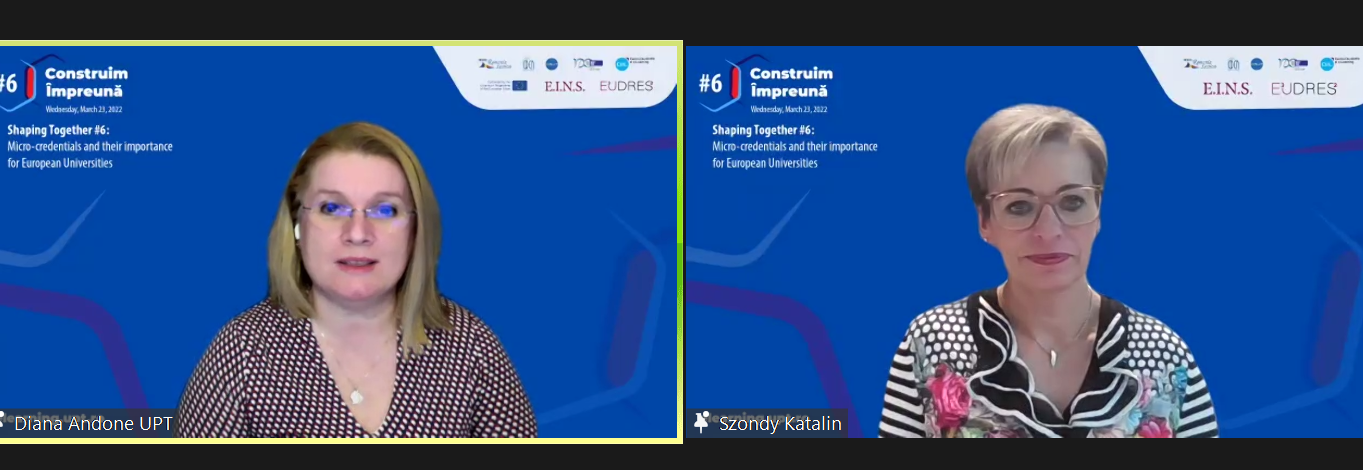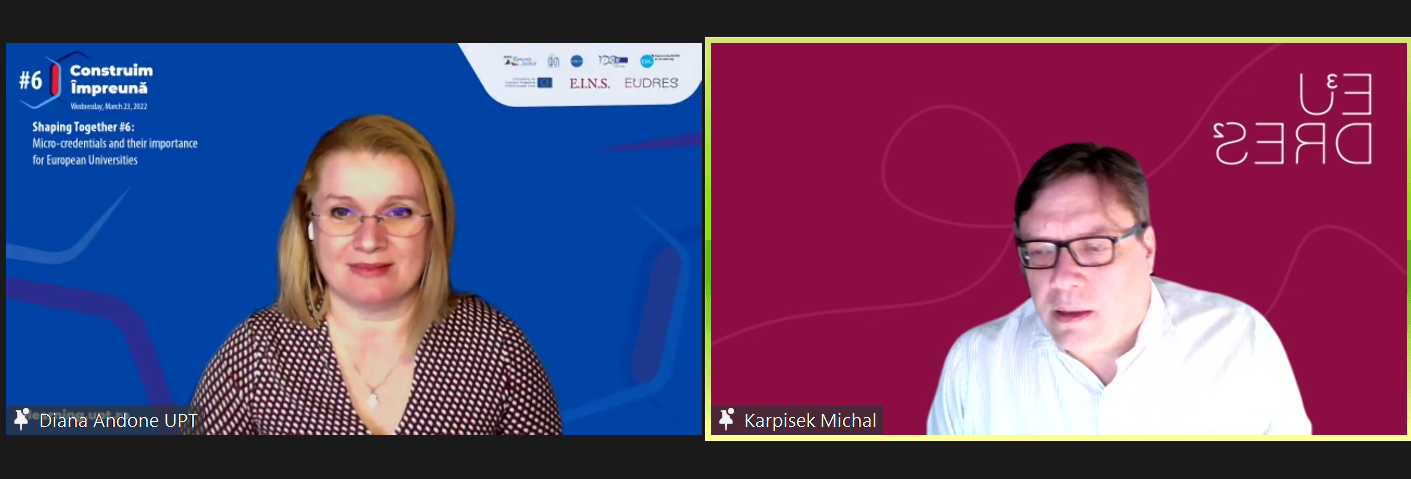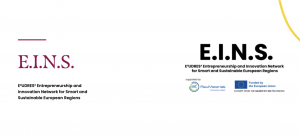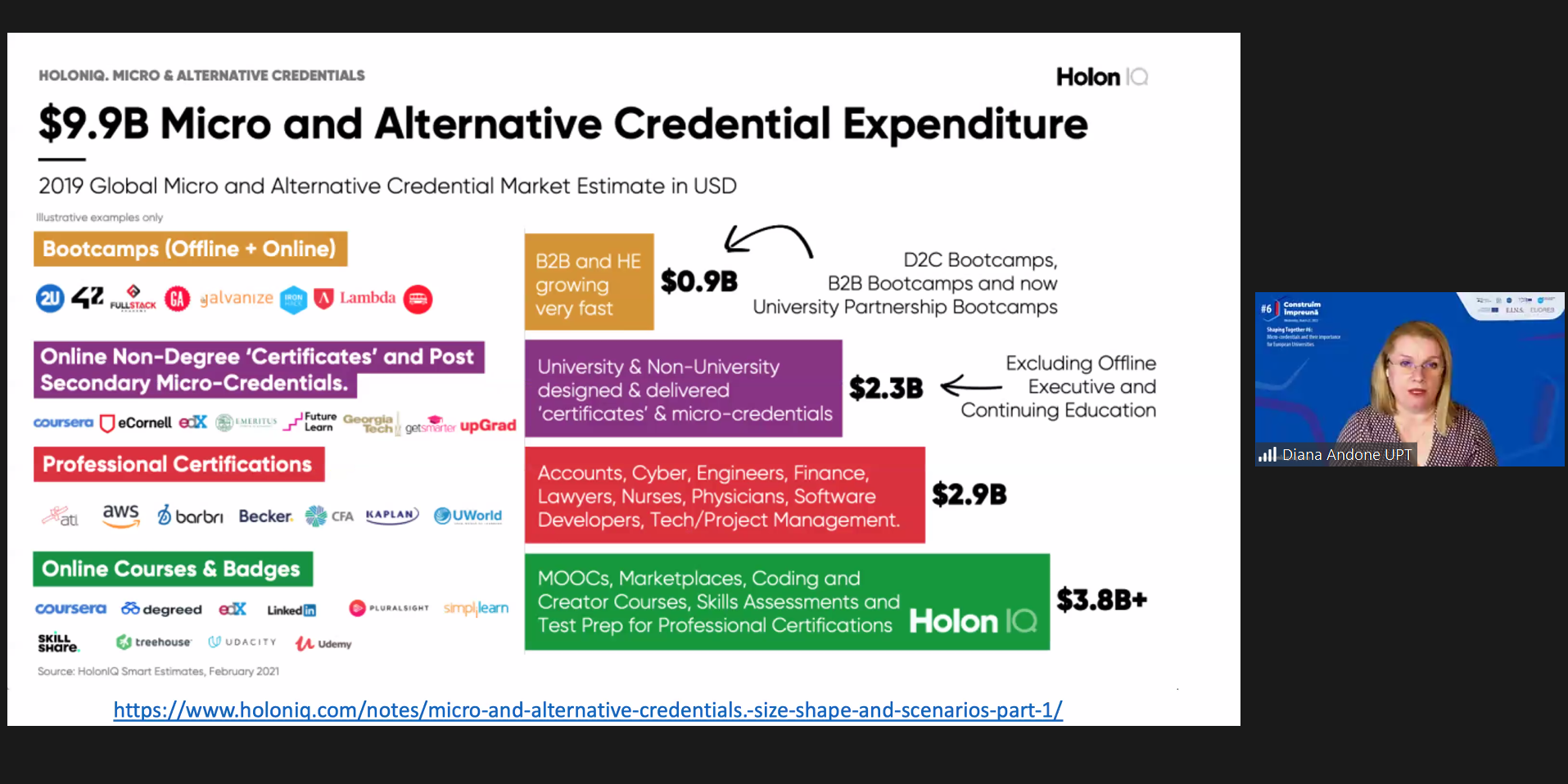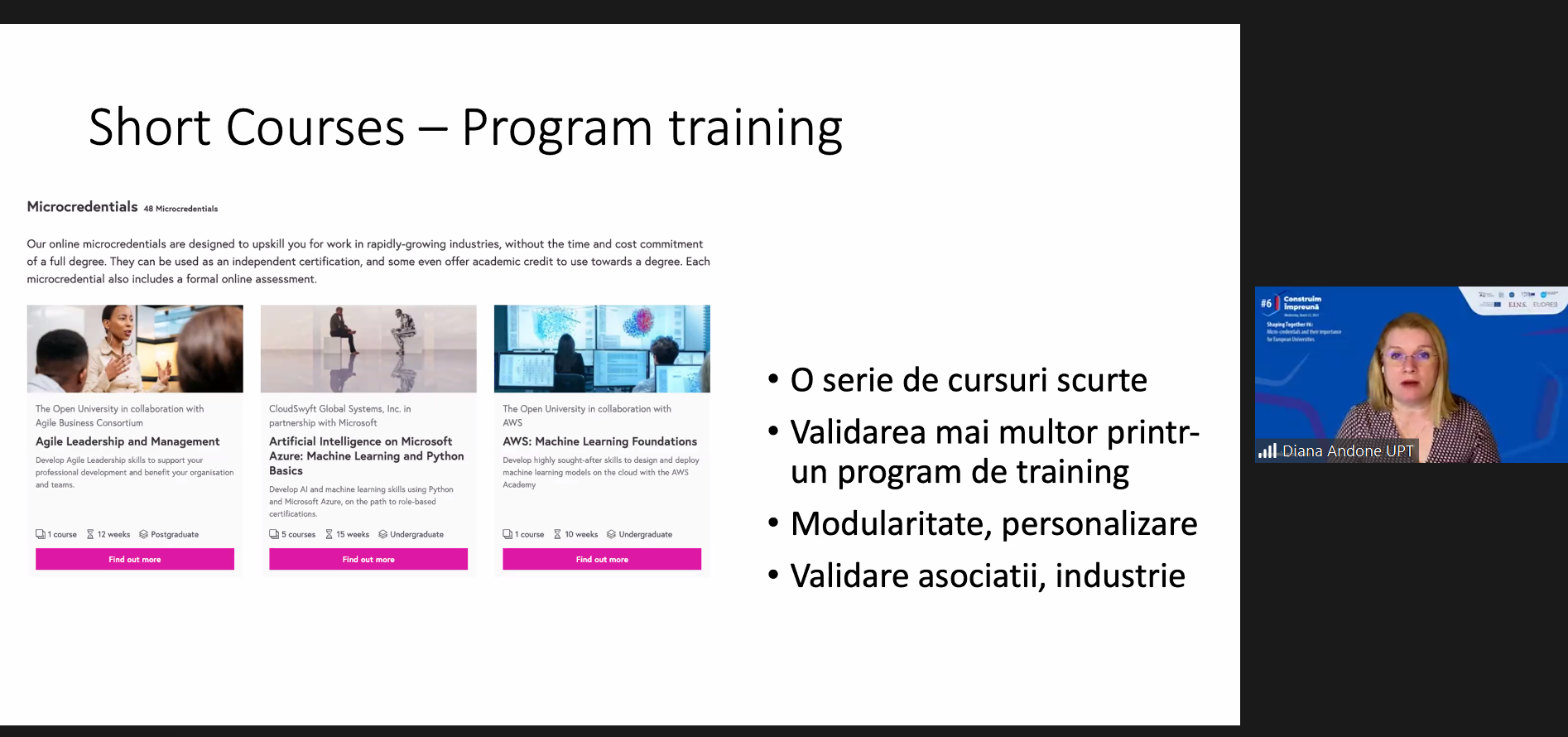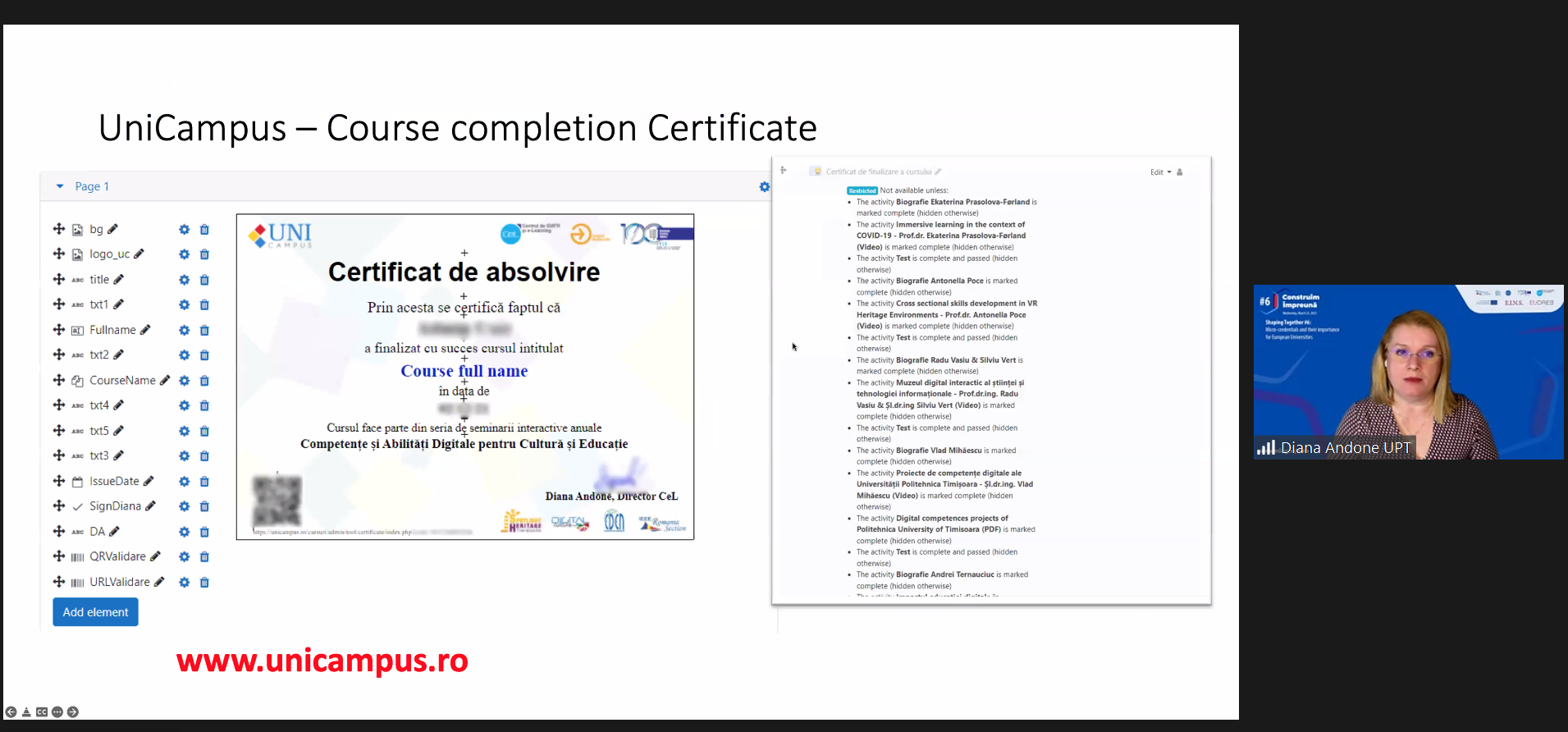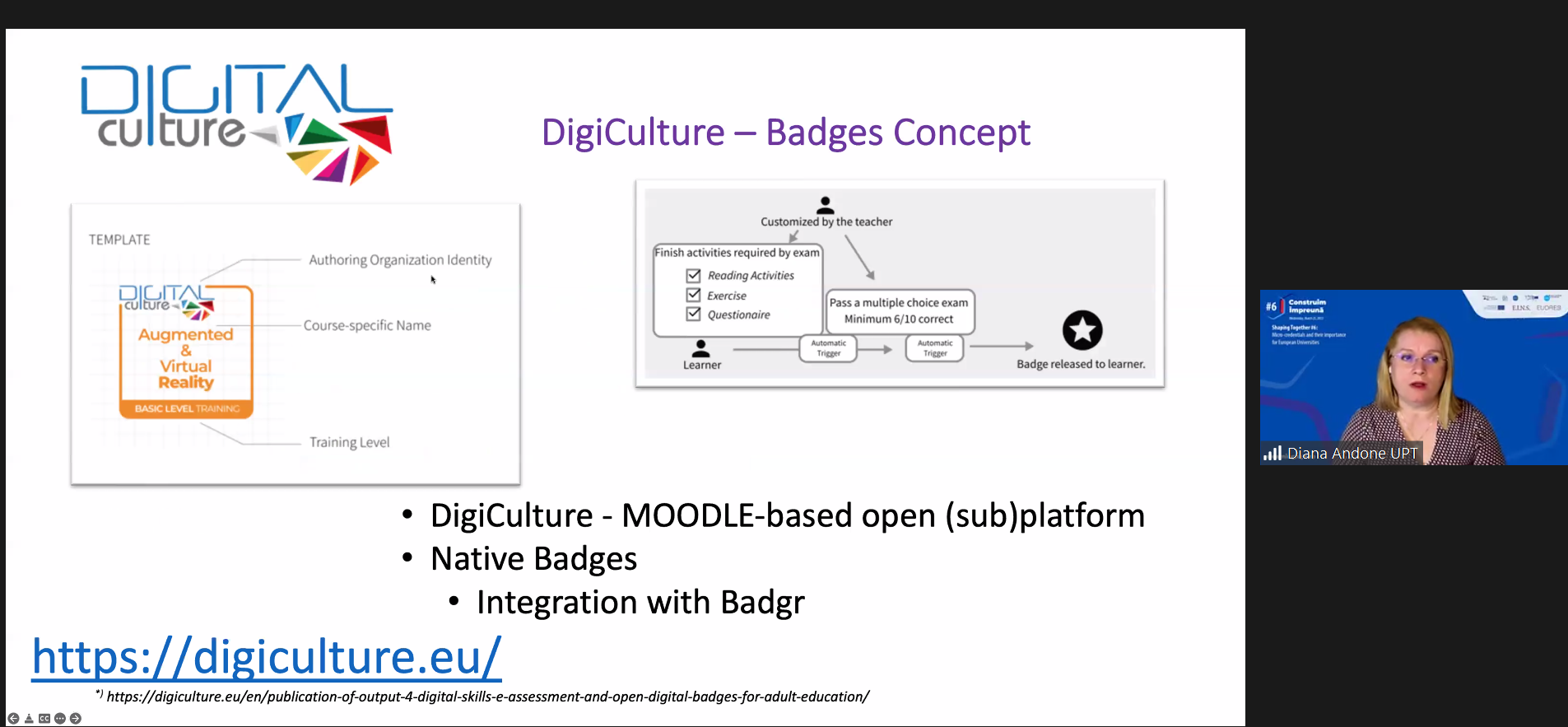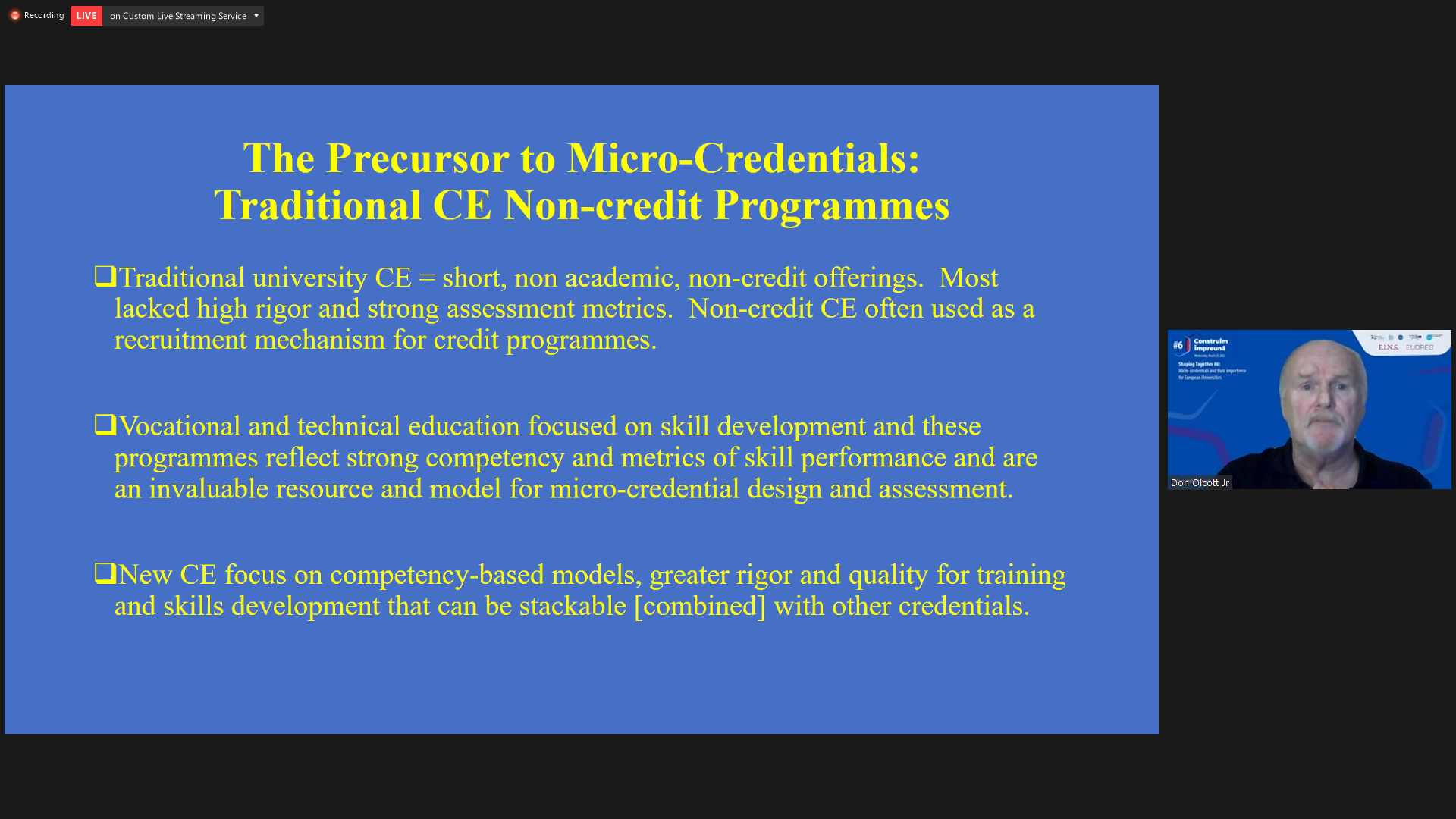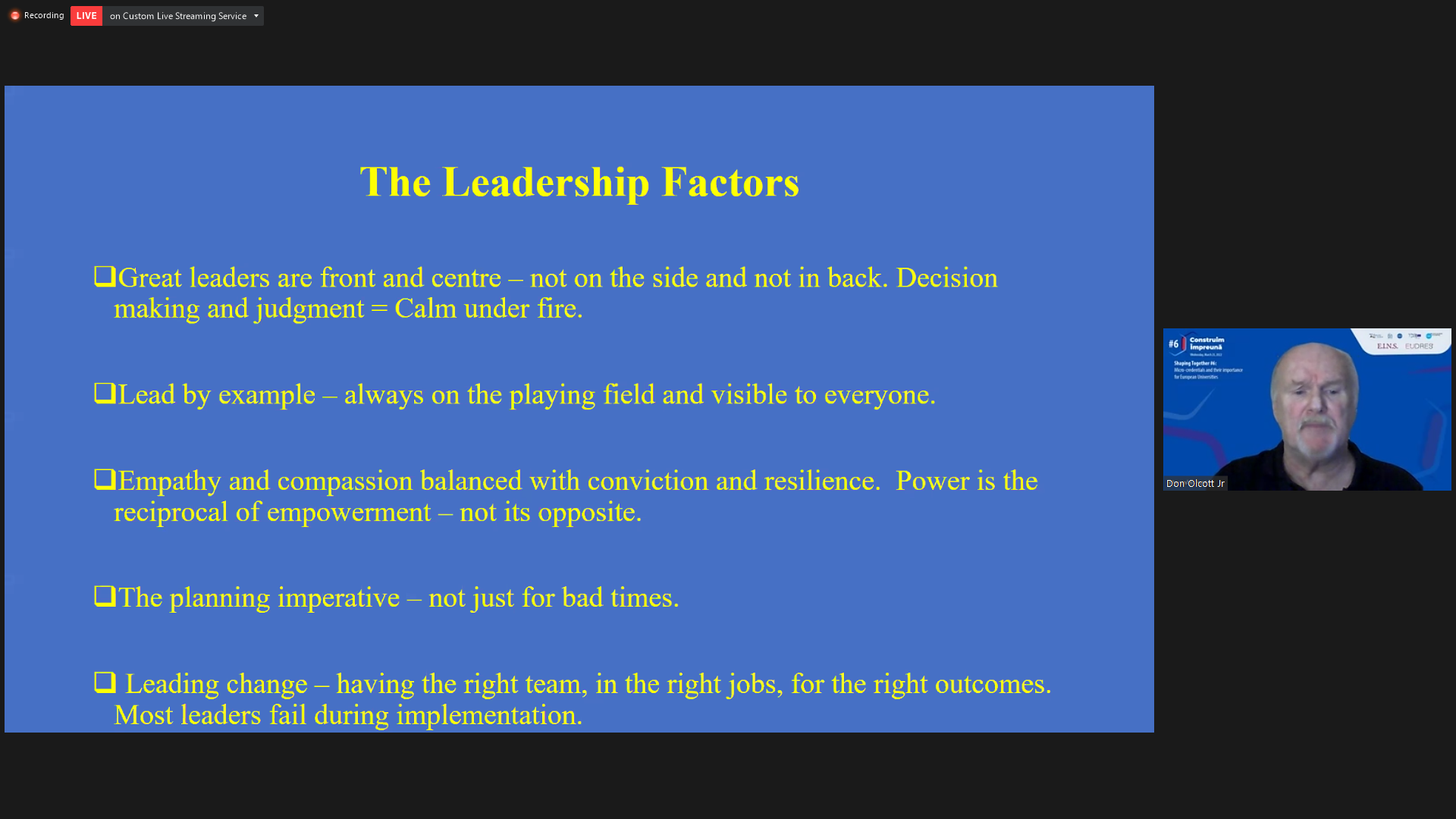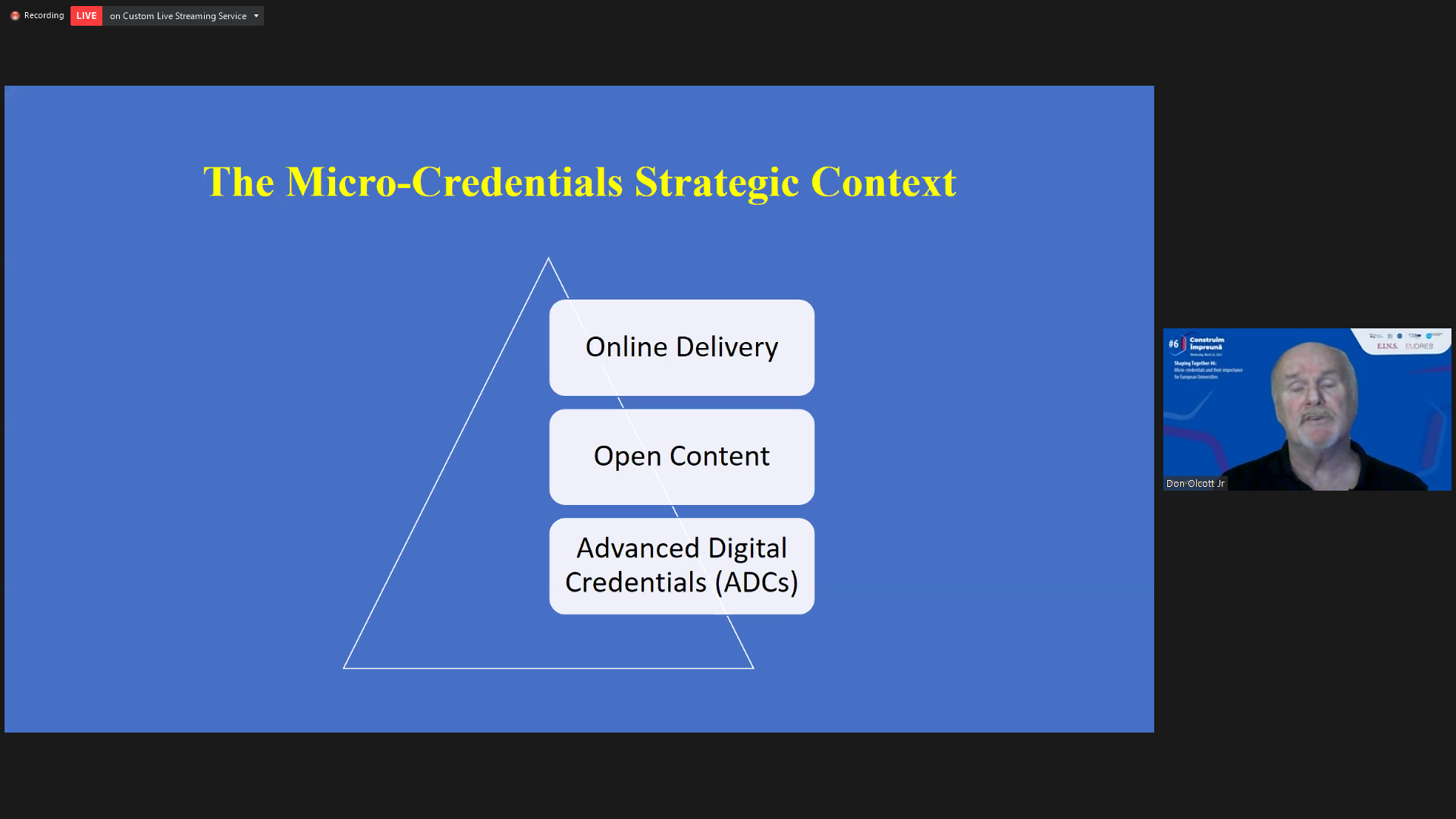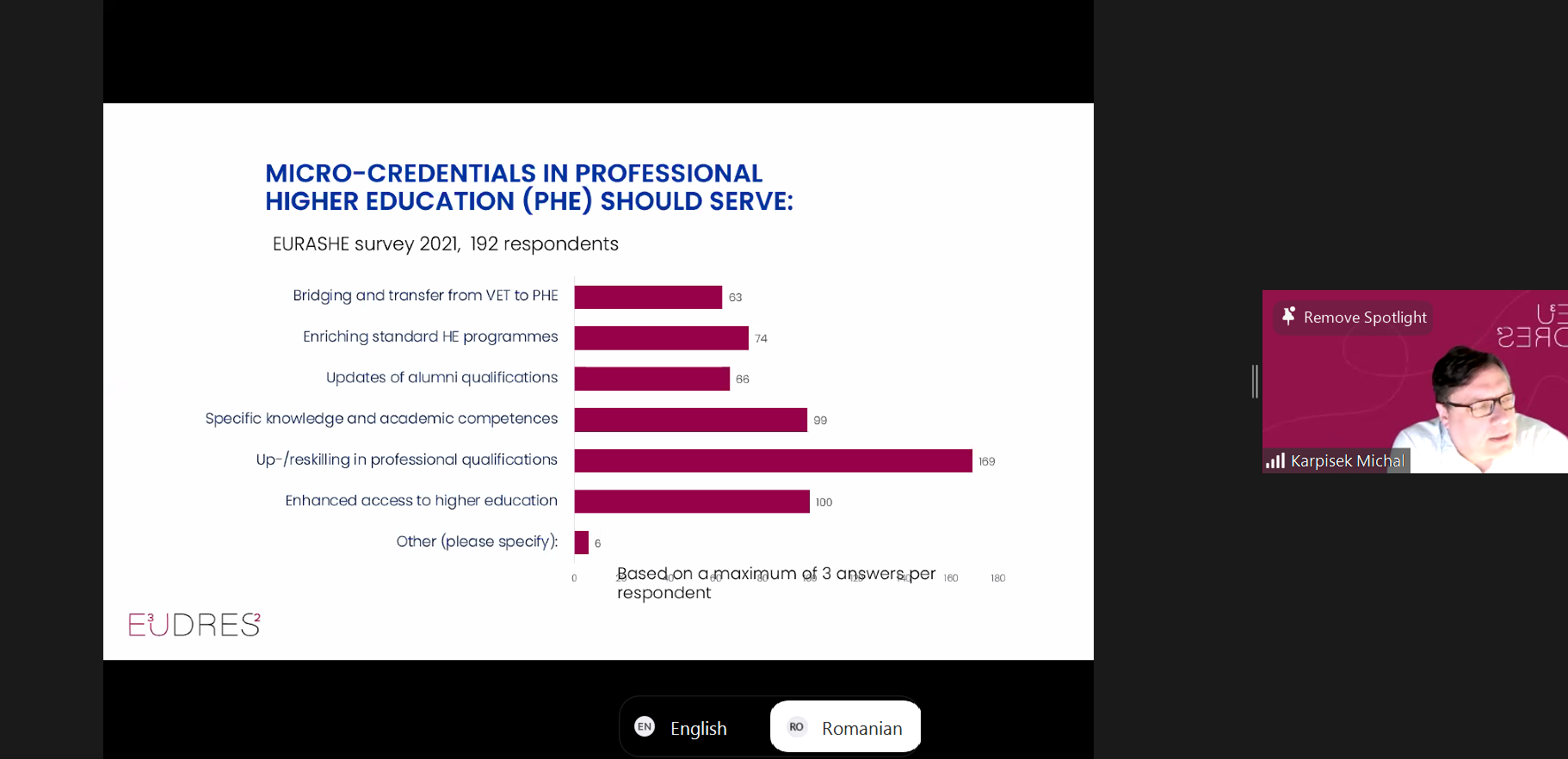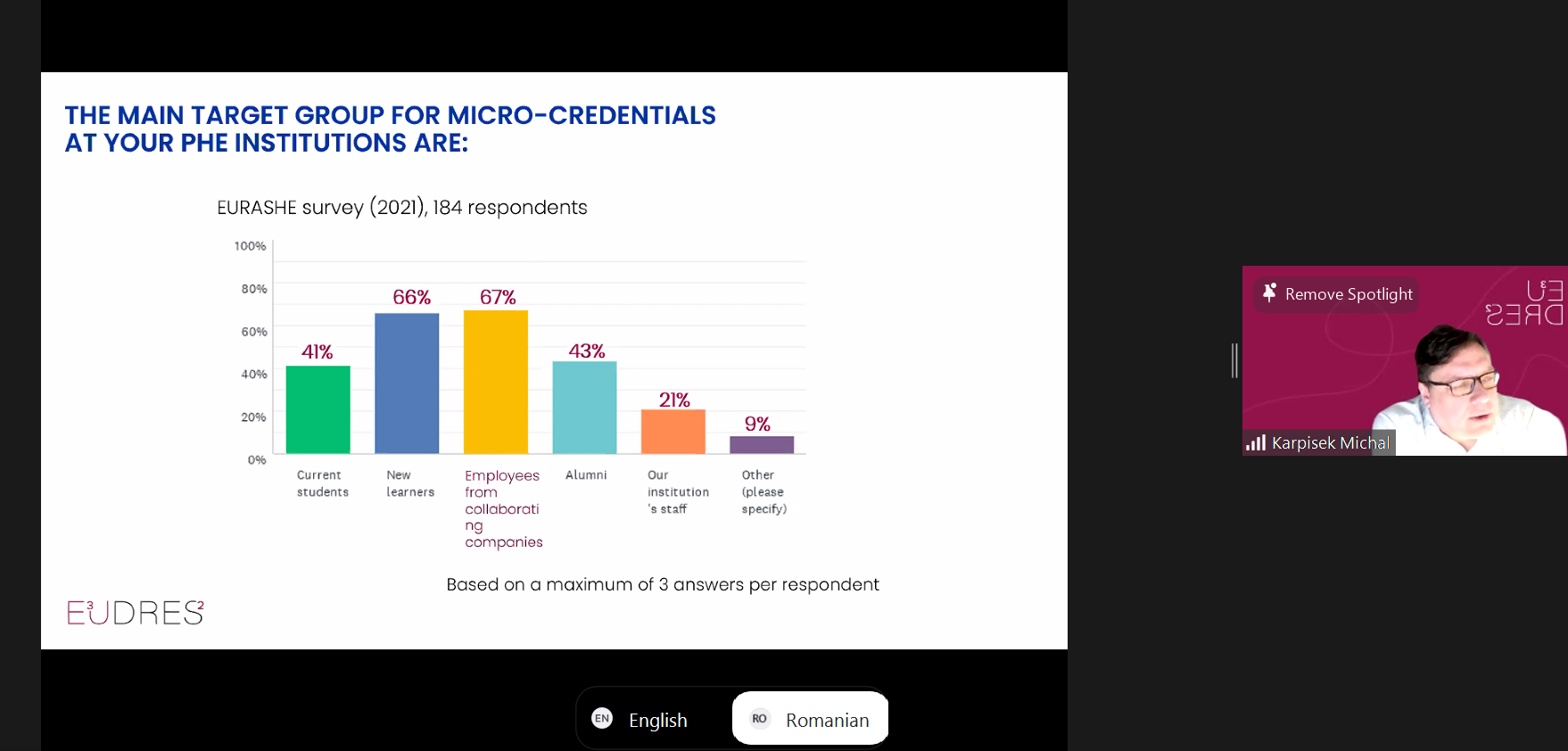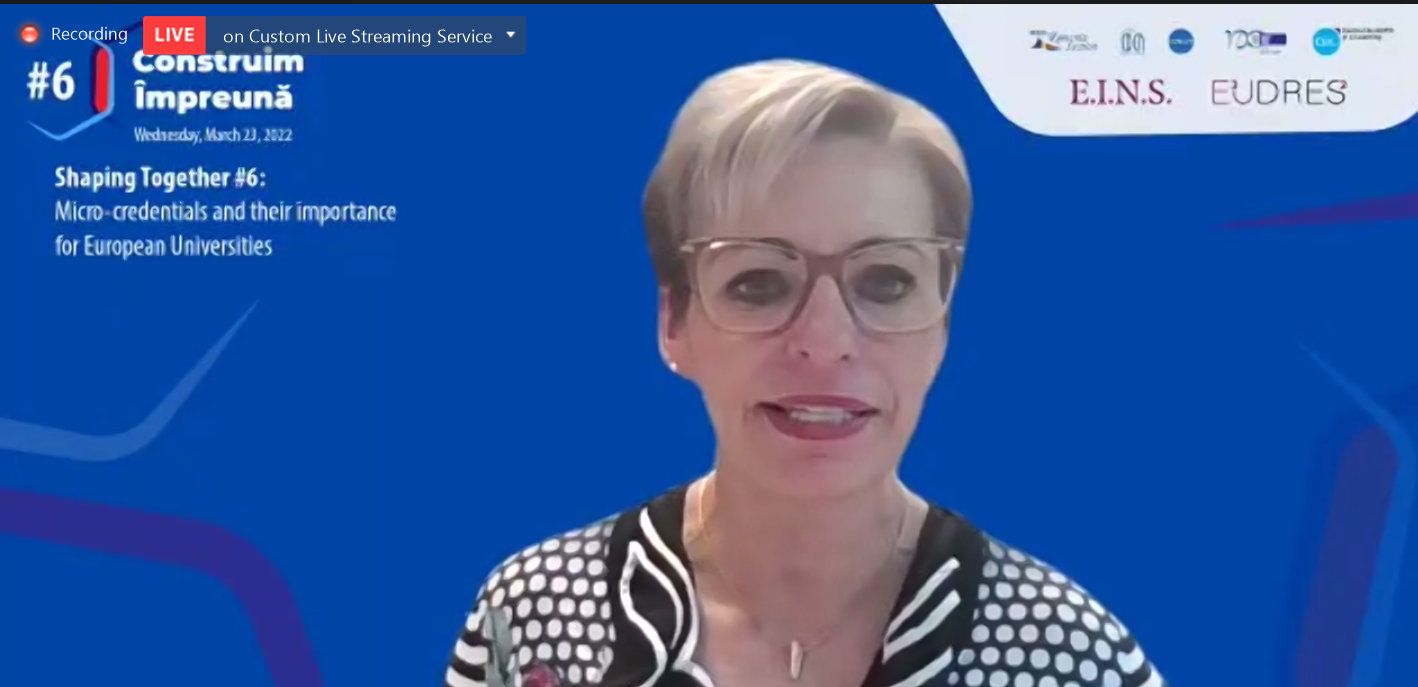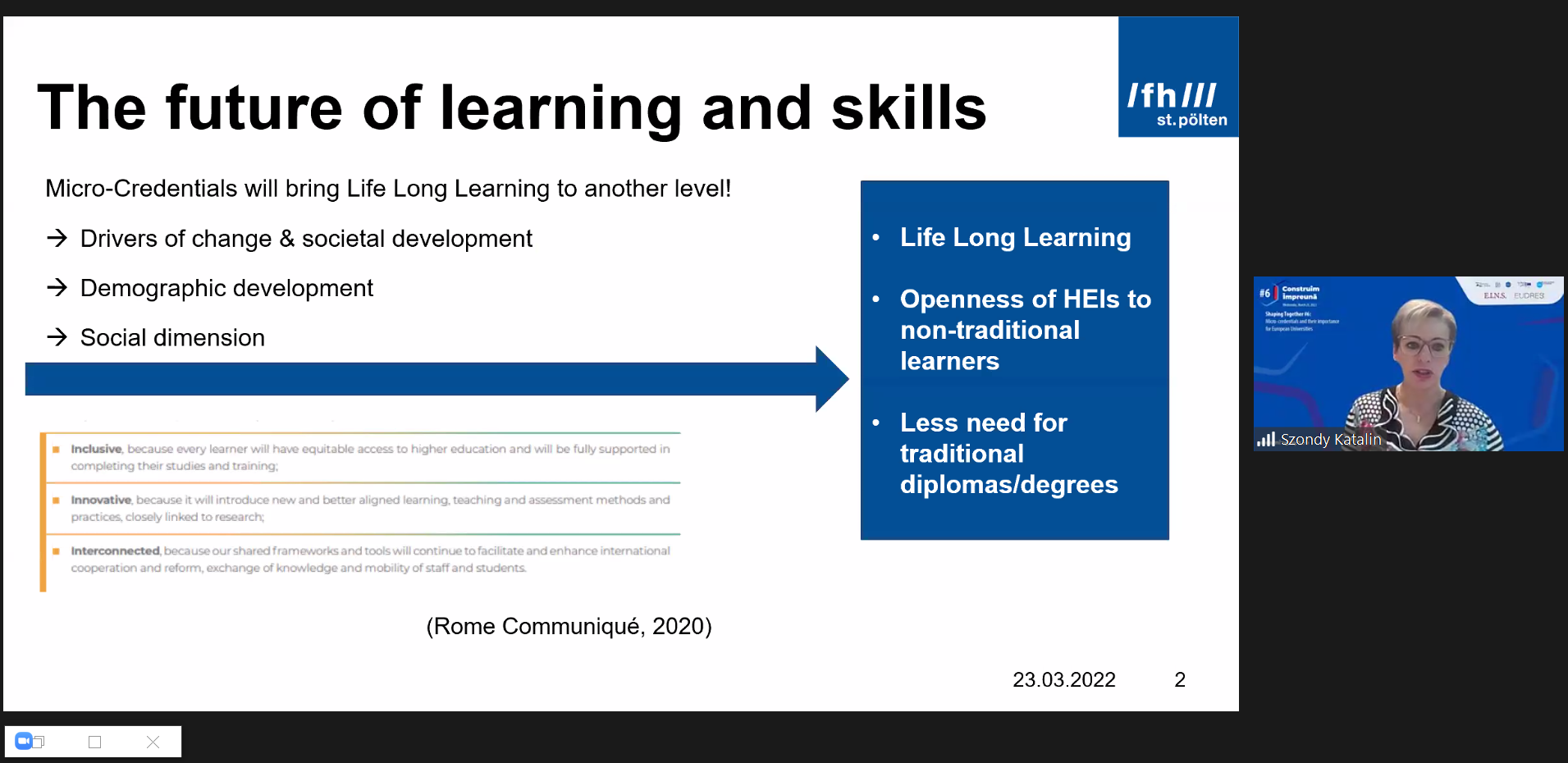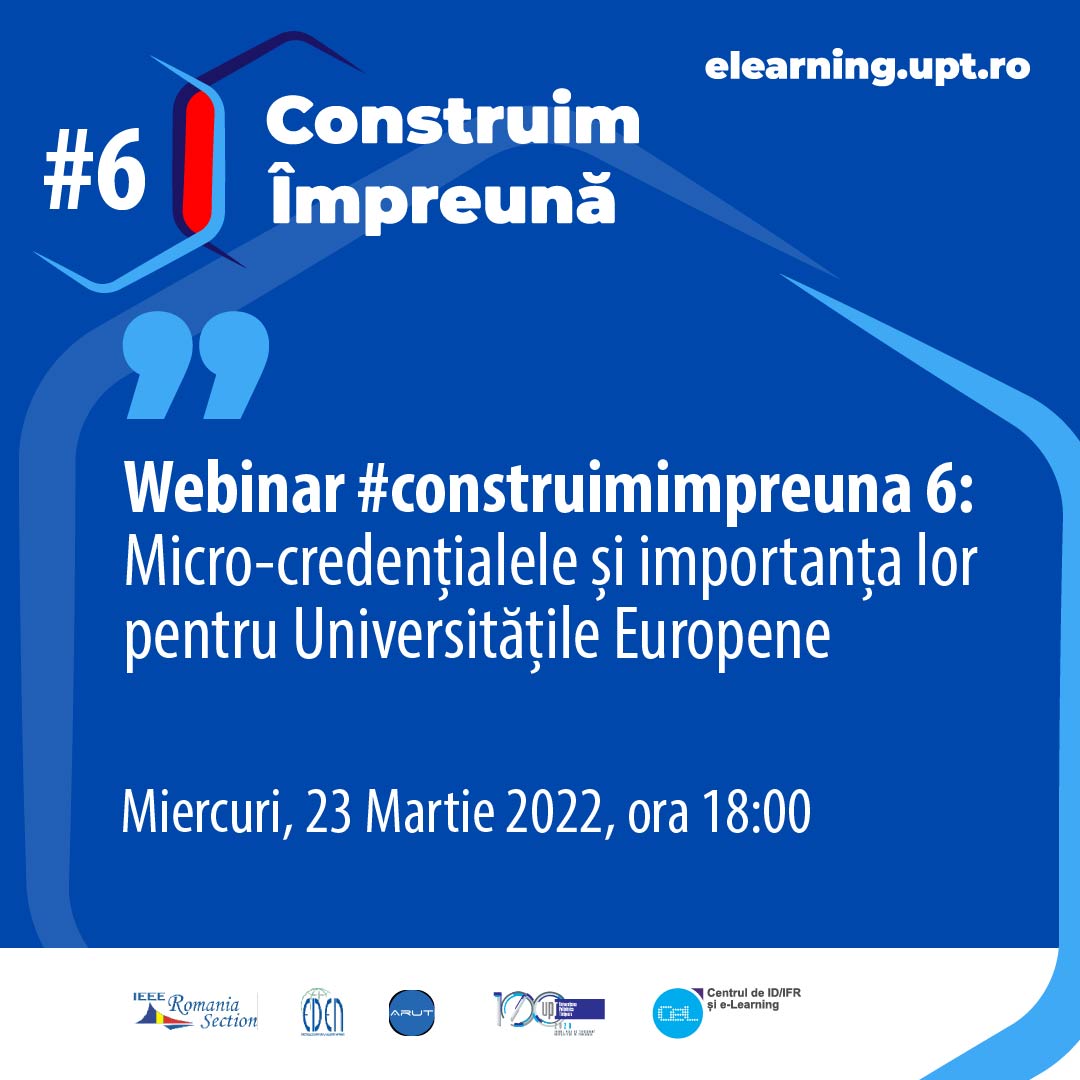
Shaping Together #6 - Micro-credentials and their importance for European Universities
#shapingtogether #developingtogether
Life and education in pandemic continue and after almost two years we have gained experience, provided numerous research and analysis, we reflected on the steps taken in 30 webinars Online Together. We know what we could have done better, we have ideas on how to do better, how to set education for the digital age, what we would like to learn from science and technology and now it is time to act.
In this new series of webinars Together, our aim is to provide information, ideas, analyzes, challenge you to discussions and encourage you to build a future on how to make the necessary changes, move further and shape education and science for today and tomorrow.
On Wednesday, March 23, the #6 edition of the webinar series #shapingtogether on the topic: Micro-credentials and their importance for European Universities took place online.
Through this webinar, the micro-credentials, and how they can be used in education were brought into the spotlight for all educators.
Speakers
Dr. Don Olcott, Jr. FRSA - President, HJ Associates, EDEN Council of Fellows Chair, Honorary Professor, University of South Africa
Michal Karpíšek - Senior policy expert, E3UDRES2 European university alliance, UAS St. Pölten, Austria
Katalin Szondy - Responsible for Higher Education Development at STPUAS, St Poelten University of Applied Sciences, Austria
Moderator:
Dr. Diana Andone - Director of the e-Learning Center Politehnica University of Timisoara
This webinar was dedicated to open education and all actors in the field of education, with the main purpose of promoting the ideas of entrepreneurship and university innovation and the strategic planning of future universities for the Politehnica University of Timisoara and other Romanian universities, in collaboration with the partners of the European Universities projects, EUDRES and EIT-HEI EINS.
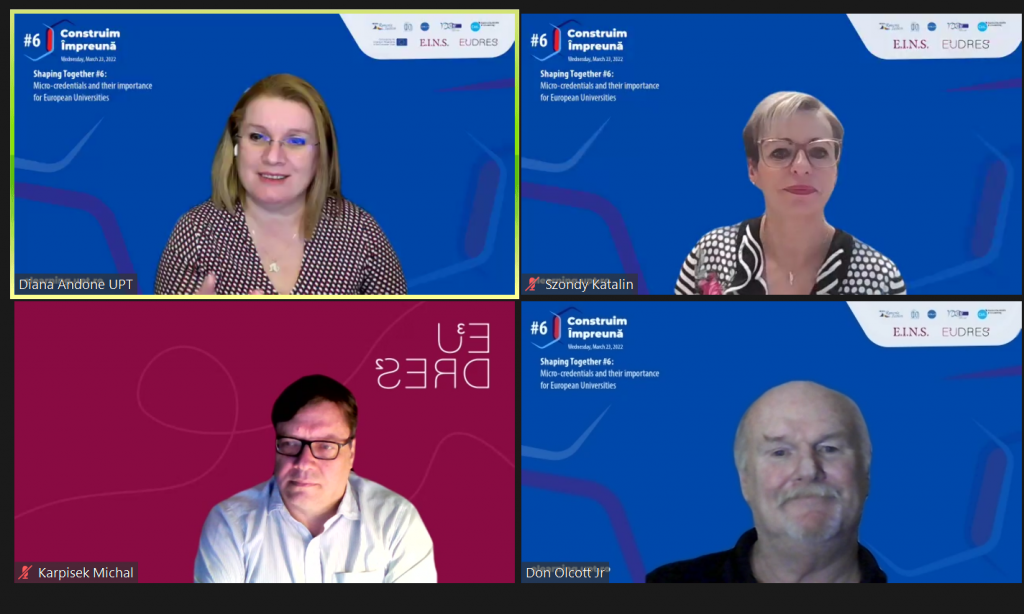
Topics discussed at this online event include:
- informing people in education about Open Education and the benefits of micro-credentials;
- promoting the collaboration between European universities, schools, non-governmental organizations, and professional associations in different contexts;
- raising awareness among all participants about micro-credentials developed in European projects and the provision of these micro-credentials within them.
Also during this session, the European Union's initiative on the revolutionary initiatives of European Universities, which is based in particular on innovation and technology, was presented.
The webinar is part of the EIT-HEI EINS Open Lecture series.
The event was opened by dr. eng. Diana Andone, EDEN Senior Fellow, CeL Director, Politehnica University of Timișoara, Romania with the presentation of an important tool of open education, namely Open Digital Certificates and the evolutions of projects within European Universities, the developed learning hub, and the free open courses for virtual mobility based on digital accreditations, using the standard Open Digital Certificates - Open Badges for recognizing participation in existing MOOCs.
Dr. Don Olcott, Jr. FRSA, President, HJ Associates, EDEN Council of Fellows Chair, Honorary Professor, University of South Africa had a presentation on Reshaping University Credentialing: A Synergy of Online, Open and Micro-Credentials, bringing to the attention of participants various key questions, especially addressed to the institutional leaders:
Are micro-credentials and digital distribution part of your strategy?
What are the strategic goals of micro-credentials for your university?
What skill-based programmes showcase your institutional strengths and allow you to compete in this emerging micro-credential market?
Who pays? Institution? Government? Students? Public? Employers? All of these?
Michal Karpíšek, Senior policy expert, E3UDRES2 European university alliance, UAS St. Pölten, Austria presented about the E3UDRES2 project and the long-term initiatives, as well as the context of building a university structure in the future; the micro-credentials standard definition, the objectives and target groups as seen by stakeholders, and the importance of using the relevant tools, concluding the presentation with a series of opportunities and challenges brought about by this European university initiative.
Katalin Szondy, Responsible for Higher Education Development at STPUAS, St Poelten University of Applied Sciences, Austria spoke about the European micro-credential strategy to improve lifelong learning and ensure quality in the future of learning and skills, presenting some long-term initiatives and recommendations.
She has continued with a number of facilities brought by micro-credentials into society, including - micro-credentials will bring lifelong learning to another level;
- micro-credentials will become the drivers of change and societal development.
Presentations were in English, and a simultaneous translation into Romanian was provided.
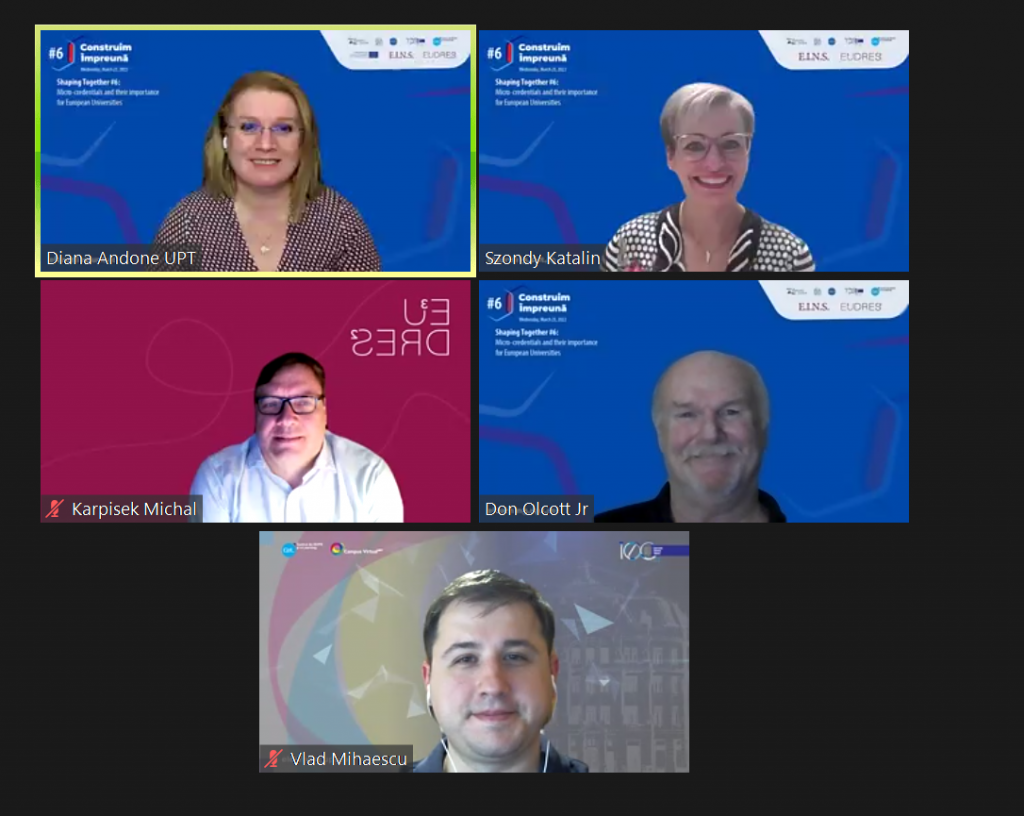
The webinar was broadcast live on the Zoom platform, Facebook, and YouTube.
Also, the participants did not hesitate to show their interest during this meeting, so they trained in discussions and intervened with questions, precisely to get the information as well as possible.
Together we will respond to the challenges of building models and structures in education and science in collaboration with IEEE Romania, EDEN Europe Association, Romanian Alliance of Technical Universities and Politehnica University of Timisoara.

Watch the full event recording below:
BIOS
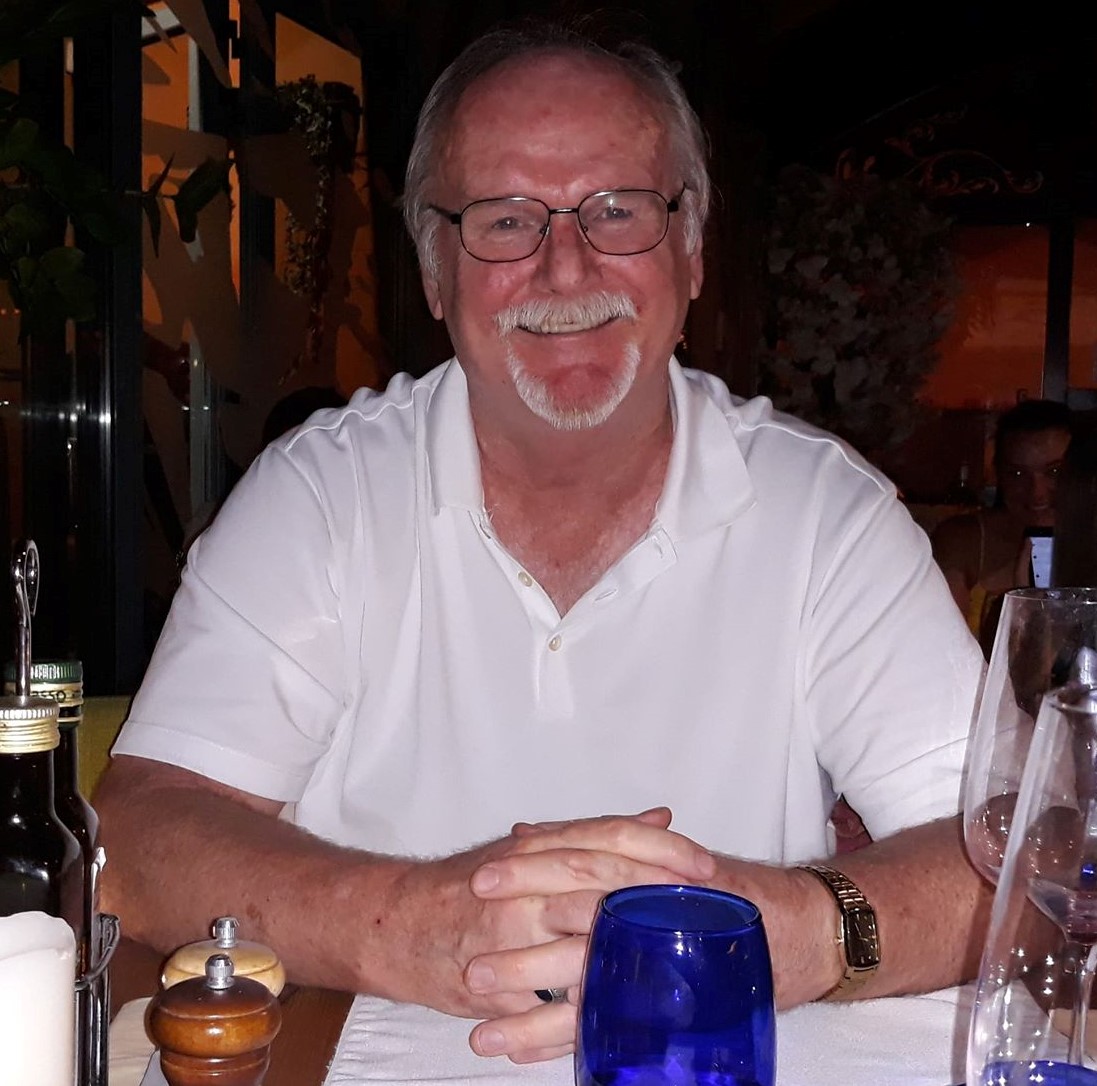
Don Olcott, Jr., FRSA
Dr. Don Olcott, Jr., FRSA, is President of Global Higher Education Consultants and Associates specializing in educational leadership and university open and distance education. He is based in Romania and holds dual Canadian-U.S. citizenship and Romanian residency. He is former chief executive of The Observatory on Borderless Higher Education (OBHE) in London and former Chairman of the Board of Directors and President of the United States Distance Learning Association (USDLA). He has lived and worked internationally in Australia, UK, United Arab Emirates, Germany, U.S., Canada and Romania. He is current Chair of the EDEN Council of Fellows.
Dr. Olcott was a 2016 Stanley Draczek Outstanding Teaching Award recipient from the University of Maryland Global Campus for excellence in online teaching and learning. Dr. Olcott was the 2013 recipient of the International Council of Distance Education (ICDE) Individual Prize of Excellence for his leadership and contributions to global open and distance education. He served as a visiting Professor and Co-Director of the uImagine Digital Innovation Laboratory and as Head of Virtual Campus at Charles Sturt University in Australia from 2014-2017.
Don is former Chairman of the Board of Directors and President of the United States Distance Learning Association (USDLA). Don formally served on the external Strategy Group of the Open University, served on the UK Online Learning Task Force (2009-2011); and is a Fellow of the Royal Society for the Arts (FRSA). He continues to serve on numerous editorial boards in open and distance education and to publish. Dr. Olcott’s research interests include language and culture in cross-border higher education, sustainable ODL and OER business models, innovative learning design models for ODL and OER, and leadership and innovation in open and distance learning and open educational resources (OER). He and his wife Nicoleta reside in Romania.
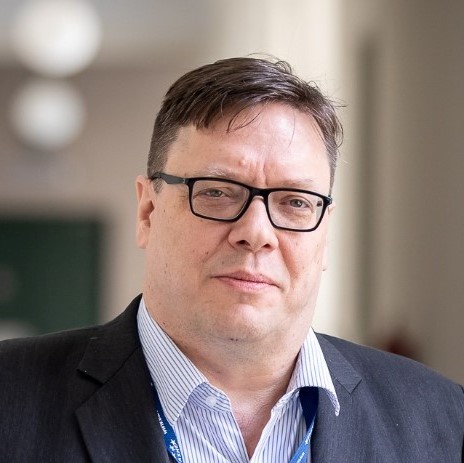
Michal Karpíšek
Michal Karpíšek is a Senior Policy Expert within the E3UDRES2 European university alliance which has been profiled by its strong emphasis on regional ecosystems, addressing their skills and innovation needs.
Michal served for 5 years as Secretary General of EURASHE, a political representation of higher vocational education in Europe. He has represented EURASHE at various European policy forums and stakeholders, EC working structures on higher education policies. This included conceptual discussions on micro-accreditation and innovative learning methods.
He served twice as an advisor to Czech ministers of education (2001-03, 2010-11) or their deputies for higher education.
He has got an experience in international projects and consulting including educational reforms in Central Europe and Central Asia.
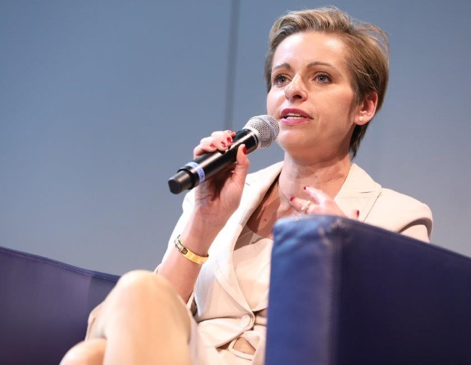
Katalin Szondy
Katalin Szondy is in charge of developing the program at St. Pölten UAS since 2013 and is head of the Higher Education Development Services Unit.
For almost two decades in the higher education sector, she has many years of experience in curriculum design and program accreditation, which is a central pillar of ensuring the quality of studies and teaching in accordance with the Law of the University of Applied Sciences. As a national expert for the EHEA, she is responsible for the implementation at university level of the specifications and recommendations of the Bologna Process, in particular as regards the quality assurance of studies and teaching in accordance with European standards and guidelines for quality assurance.
As a long-term expert in the field of curriculum design and university quality assurance, she is involved in numerous national and international projects and working groups on selected topics in the development of higher education. Katalin Szondy holds a PhD in Translation Studies from the University of Vienna and worked for almost a decade at the Center for Translation Studies (University of Vienna), where she was a Senior Lecturer and Curriculum Director at the Cross-Cultural Communication and University of Vienna. master's degrees Translation and interpretation.
Her special interest is in the field of SEIS socio-political issues, especially in the opening of universities to non-traditional students. As an expert in cooperative education in Austria, Katalin Szondy supports greater openness from universities to partnerships with industry.
